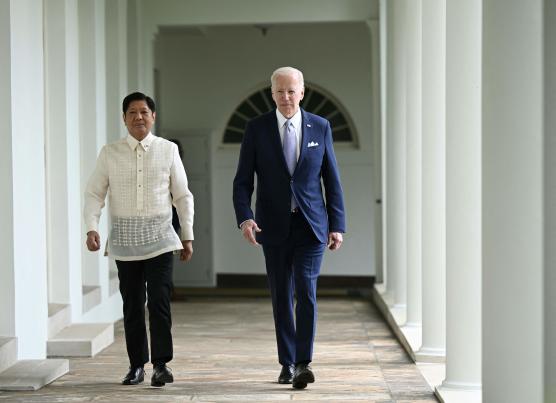
Nathaniel Schochet, Analyst and CJPA Global Advisors
Earl Carr, Founder and Chief Executive Officer at CJPA Global Advisors
Jul 21, 2023
In a series of recent high-level communication between China and the U.S., Treasury Secretary Yellen completed an official visit to China earlier this month. While the trip might indicate that a process towards renewal has finally begun, and pave the way for future dialogue, there were no tangible or immediate outcomes.
Richard Weitz, Senior Fellow, Hudson Institute
Jul 21, 2023
Talks between executive officials of the U.S. and China have resumed, after a disastrous start to the year. However, the presence of dialogue alone is no proof that substantial changes are in the works, as substantial changes have not emerged from current meetings.
Richard Javad Heydarian, Professorial Chairholder in Geopolitics, Polytechnic University of the Philippines
Jul 21, 2023
Renewed talks between the U.S. and China have led to a flurry of speculation on what the near future holds, but perhaps no one is watching as closely as China’s neighbors who would prefer de-escalated tensions sooner than later, especially if it means avoiding crossfire between the two rivals.
Sebastian Contin Trillo-Figueroa, Geopolitics Analyst in EU-Asia Relations and AsiaGlobal Fellow, The University of Hong Kong
Jul 21, 2023
Chinese Premier Li Qiang recently visited several EU nations, and his visits revealed much about where China sees opportunities to make inroads in the West, and his reception by European counterparts show some notable approaches by EU leaders to China’s overtures.
Zhong Yin, Research Professor, Research Institute of Global Chinese and Area Studies, Beijing Language and Culture University
Jul 19, 2023
U.S. Treasury Secretary Janet Yellen’s visit to China served as a reminder of the integral relationship that exists between the two countries. While the U.S. now says it merely seeks de-risking in its trade policies, it should be careful not to throw the baby out with the bathwater.
Arvind Subramanian, Visiting lecturer at Harvard’s Kennedy School of Government
Jul 12, 2023
The unprecedented lovefest between the United States and India has been striking and, frankly, puzzling. Following the pageantry of US President Joe Biden hosting a state dinner for Indian Prime Minister Narendra Modi, and of US Speaker of the House Kevin McCarthy inviting Modi to address a joint session of Congress for a second time, one wonders if America is giving away the store and getting very little in return.
Digby James Wren, Special Senior Advisor, Royal Academy of Cambodia
Jul 12, 2023
Since the Trump administration launched its trade and tech war on China, no evidence whatsoever has been revealed by state-led investigations into US allegation

Lucio Blanco Pitlo III, President of Philippine Association for Chinese Studies, and Research Fellow at Asia-Pacific Pathways to Progress Foundation
Jul 05, 2023
The Philippines and the U.S. issued new Bilateral Defense Guidelines, which help modernize the alliance, but can’t replace diplomacy when addressing differences.

Joseph S. Nye, Professor, Harvard University
Jul 05, 2023
When Indian Prime Minister Narendra Modi met with US President Joe Biden in the White House this month, many observers saw the makings of an evolving alliance a

Sajjad Ashraf, Former Adjunct Professor, National University of Singapore
Jul 04, 2023
Washington’s increased presence in the Asia-Pacific region, along with the polarization of America’s political system, are intensifying the challenge of reaching a breakthrough with China. And as tensions grow, particularly surrounding Taiwan, the U.S. must build on the momentum from Blinken’s visit and seek compromise with Beijing.
Back to Top

- China-US Focus builds trust and understanding between the U.S. and China through open dialogue among thought leaders.
- Our Offerings
- Topics
- Videos
- Podcasts
- Columnists
- Research Reports
- Focus Digest
- Stay Connected
-
Thanks for signing up!
- Get the latest stories from China-US Focus weekly.